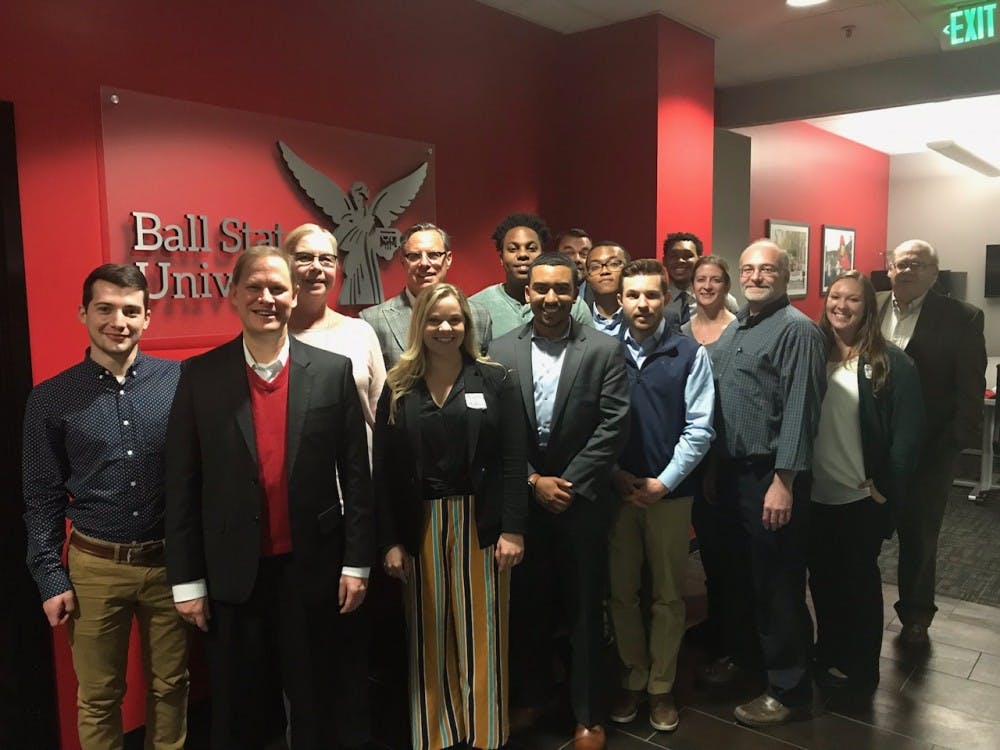Aspirational 30-year-old professionals with a family may have not always been able to go back to school. But thanks to the internet, it may be more possible than ever before.
The Center for Information and Communication Sciences (CICS) has launched its 38-credit online Master of Science in Information and Communication Sciences program that can be completed in 18 months.
According to the CICS website, the master’s program has led graduates to several different careers including business analyst, technology coordinator, network architect and sales engineer.
Dennis Trinkle, director of CICS, said the original on-campus program was founded 34 years ago and is one of the first master’s degree programs in the country to combine leadership and business skills with technology fluency. He said it's the Ball State immersion experience applied to the graduate level.
Trinkle said a large part of the program is the social learning and the utilization of faculty member practitioners. Those participating in the on-campus and online program spend time networking with alumni and executives to help students become comfortable in those environments.
“We don’t turn you into an extrovert, but we help you figure out how to authentically be yourself in all of these different contexts to be successful professionally,” Trinkle said.
He said because of the social learning aspect, CICS has been hesitant to start an online program despite demand. But, Trinkle said technology has progressed enough to allow that aspect to be successful and do just as well as the on-campus program.
“It’s not just going to be a ‘read about it’ kind of program … even though it’s an online program,” Trinkle said.
Jessica Coffin, assistant CICS lecturer, assistant teaching professor and online program coordinator, is helping launch the online program. She said the success of the ground program needs to be replicated online, and she will be looking for feedback to further improve the program.
She also said the immersive-type projects of the online program are important to connect students to real-world situations.
“We don’t want to be talking heads at the end of a screen for three hours,” Coffin said.
The program kicked off Jan. 7 and has been in development for a year. It has 11 students currently enrolled, but Coffin said the goal is to reach 35 students by August. The ground program takes 11 months to finish, but the online program takes 18 to 24 months to finish.
“It’s hard to imagine a program that’s more in line with what individuals need, and with what the state needs economically speaking, to prepare people for the future,” Trinkle said.
Coffin said the ground program has a 90 percent placement rate with 1,800 alumni worldwide. Trinkle also said the cost of the program is competitive compared to other schools.
“[It’s] by far the cheapest program of quality that you can find,” Trinkle said.
According to the CICS website, for Indiana residents, it costs $410 a credit and $616 a credit for out-of-state residents. At Purdue University, credits for its master of science in communication online program are set at $451.20 each for Indiana residents and $751.20 for out-of-state students.
Nancy Prater, director of marketing and communications for the division of online and strategic learning, said despite the program now being available online, different services like consultants are put in place to make sure students and faculty are successfully working with the technology and the program.
“Nothing is watered down,” Prater said. “But the key is it’s a different delivery method.”
Coffin said the program is mostly directed toward individuals who have been in the workforce for at least three years looking to earn their master’s or find other opportunities.
“There’s a lot of people, especially still young professionals, who might still want to get that program. But now they have a mortgage and they have kids, and they’re just not ready to take a full year off without a salary to do this program,” Prater said.
Prater said there are similar programs on campus in nursing, education and applied behavioral analysis.
“We have every anticipation that the online will be equally well-regarded and equally popular (as the on campus program),” Trinkle said.
Contact Andrew Harp with comments at adharp@bsu.edu or on Twitter @adharp24.





